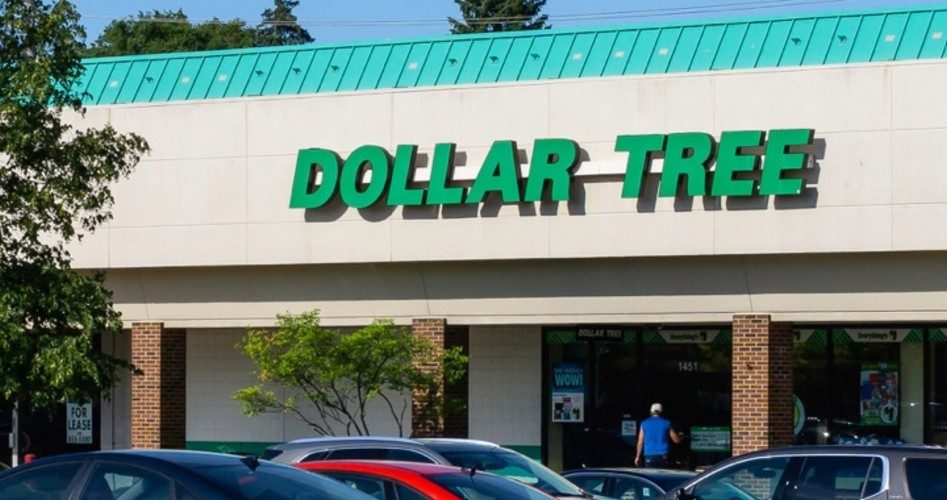
Podcast: Play in new window | Download ()
Subscribe: Android | RSS | More
Adam Smith famously described the power of the free market’s “invisible hand” in his monumental tome, The Wealth of Nations. In it, Smith said that the butcher does not provide us our supper for our benefit, but in the process of acting in his own self-interest, he does provide us with our supper.
Apparently, the Oklahoma City Council — joining several such cities across the country, including Tulsa, Fort Worth, Birmingham, and DeKalb County in Georgia — has little regard for Smith’s “invisible hand” (presuming they have ever even heard of it). This week, the Oklahoma City Council passed restrictions on the establishment of “dollar stores” in areas of the city that are statistically less healthy.
One would think that dollar stores, such as Dollar General and Dollar Tree, illustrate the power of the free market hailed by Smith. After all, these retailers bring low-cost items to lower-income locales, thus improving their standard of living.
But the members of the city councils such as Oklahoma City evidently believe they can, by council fiat, direct the economies of their cities with all the skill of an old Soviet Commissar, or the Fascist state under Italy’s Benito Mussolini.
If one thinks that it is too harsh to compare the actions of Command Economy of a communist country or the fascism of Mussolini, or even Hitler’s National Socialist Germany, with what is being done in an increasing number of cities, is it not a “Command Economy” when city council members take upon themselves to decide not only what stores locate in their cities, but even micromanage what is sold in the stores, and even how much space is dedicated to each part of the store?
Take the latest ordinance in Oklahoma City: Before a new dollar store can locate within the 73111 zip code, that store will have to include a pharmacy, or provide at least 500 square feet of floor space for fresh fruits, vegetables, and meats.
If you don’t like the application of the term fascism, communism, or national socialism to what these cities are doing, what would you call it? It certainly is not free enterprise. One local official in DeKalb County, Georgia, was quoted by the Atlanta Journal-Constitution, “We don’t need them on ever corner.” In other words, his judgment should supersede that not only of the entrepreneurs who open the stores, but that of his constituents who freely choose to patronize the stores. It is the job of a city council member to oversee the police and fire services, where to put up traffic lights, and the like. How did it get to be his power to dictate the minutia of retail space?
All of this governmental activity is based upon the idea that certain poorer areas are in what they call “food deserts” — areas with no nearby supermarket. This was one of the causes championed by former First Lady Michelle Obama, hardly a champion of the free enterprise system.
These restrictions on the operation of the free economy are clearly inimical to freedom. But, do they even accomplish their goal of causing poor people to eat healthier? A paper published by the Quarterly Journal of Economics, written by three economists, does not support that supposition. They reviewed the grocery store purchases of 10,000 households in what had been “food deserts,” but now enjoy supermarkets that have located there.
What they found is that the people shopping in the shiny, new supermarket tended not to buy healthier food. “We can statistically conclude that the effect on healthy eating from opening new supermarkets was negligible at best,” the three economists concluded.
What apparently happens is that, just as one can lead a horse to water but can’t make him drink, one can provide healthier food for people, but that does not mean they are going to eat it. And forcing poor people to eat one food item considered best by a public official, rather than the food item the consumer prefers, is certainly totalitarian.
Interestingly, these dollar stores are popular with higher-income families, as well. People who already have more money tend to be more careful with how they spend that money. Sometimes, poverty is the result of bad choices, often across generations. That is why the purchase of items in convenience stores such as 7-11 — purchases that can be made in the nearby grocery store much cheaper — are much more likely to be made by a lower-income person than a higher-income person.
But one will not get such analysis from most mainstream media. As the Washington Post recently wrote in a sensationalistic headline about large stores, the headline claimed that these retailers “storm” into a city. Do they really “storm” into a city, or do they simply open a store within a city? After all, they believe it will be to their own self-interest to open a new retail store or they would not open it. But, by opening such a store, they benefit the people in that surrounding area.
Government, whether it be at the national, state, or local level, would do better to police the streets, and put out the fires, rather than micromanage how many square feet a store dedicates to lettuce, oranges, and soda pop.
Photo: RiverNorthPhotography/iStock Unreleased/Getty Images
Steve Byas is a university instructor in history and government, and author of the book, History’s Greatest Libels. He can be contacted at [email protected]


